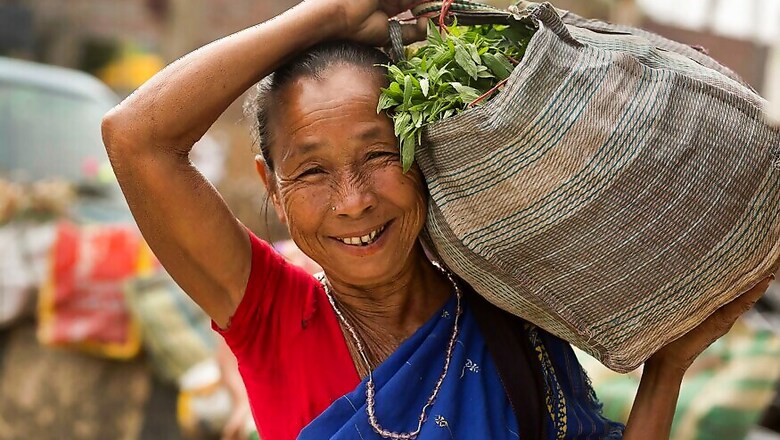
views
Observed on August 9 every year, World Tribal Day or the International Day of the World's Indigenous People is aimed at protecting the rights of the world’s tribal population. The day also recognises the achievements and contributions that indigenous people make to improve world issues such as environmental protection. It was first declared by the United Nations in December 1994 marking the day of the first meeting of the UN Working Group on Indigenous Populations of the Subcommission on the Promotion and Protection of Human Rights, in 1982.
India as a country has seen several tribal movements across Bihar (1772), Andhra Pradesh, Andaman and Nicobar Islands, Arunachal Pradesh, Assam, Mizoram and Nagaland. Tribal movements in India have seen various shades from being agrarian and forest-based to being ethnic in nature, when tribals directed their revolt against zamindars, moneylenders and even government officials.
On World Tribal Day, here’s looking at a few tribal movements that have sprouted across India over the years.
The Santhal rebellion (June 30, 1855 to January 3, 1856): Also known as the Santhal Hool, it was a native rebellion in eastern India against both the British colonial authority and zamindari system by the Santhal people. The rebellion was led by the four Murmu Brothers - Sidhu, Kanhu, Chand and Bhairav. Notably, the uprising was aimed towards ending despotic British revenue system, usury practices, and the zamindari system in India.
The Munda Rebellion: One of the most prominent 19th century tribal rebellions in the subcontinent. Birsa Munda led the movement in the region south of Ranchi in 1899-1900, seeking the establishment of Munda Raj and independence after the system of khuntkattidar was corroded by the jagirdars and thikadars who came as moneylenders and as traders. The government would go on to attempt to redress the grievances of the Mundas through the survey and settlement operations of 1902-10 and the Chhotanagpur Tenancy Act of 1908 provided some recognition to their khuntkatti rights and banned beth begari.
The Bodo Movement: The official movement of the Bodos for an independent state of Bodoland started under the leadership of Upendranath Brahma of All Bodo Students’ Union (ABSU) on March 2, 1987. While the movement was suppressed by the then government, the ABSU created a political organization called the Bodo People’s Action Committee (BPAC). ABSU began the new movement with the slogan “Divide Assam Fifty-Fifty, but it too ended up with the creation of Bodo Accord in 1993. The accord collapsed and there was a split in ABSU and other political parties. After the Bodo Accord, the Bodoland Autonomous Council (BAC) was constituted, which was later replaced by the BTQ which was established in accordance with the Memorandum of Settlement (MoS) on February 10 2003.
Other tribal revolutions that have risen in India between the 18th century and the 20th century include:
1784-1785: Uprising of the Mahadev Koli tribes in Maharashtra.
1812 Kurichya Rebellion organised by the tribal people Kurichyas against the Wayanad invasion of British in 1812.
1857-1858 The Bhil revolted against under the leadership of Bhagoji Naik and Kajar Singh.
1862 The Koya tribal community revolted in Andhra against tribal landlords called 'Muttader' in tribal dialect.
1891 The tribals of North-East India revolted against the British under leadership of Tikendraji Singh.
1910. The Bastar Revolution in central India
1917-1919 Kuki Uprising in Manipur against British colonialism under the leadership of their chieftains called haosa
1941 The Gond and the Kolam revolted in collaboration against British Government in the Adilabad district of the state of Telangana.
1942 Tribal revolt under leadership of Lakshmana Naik at Koraput in Orissa.

















Comments
0 comment